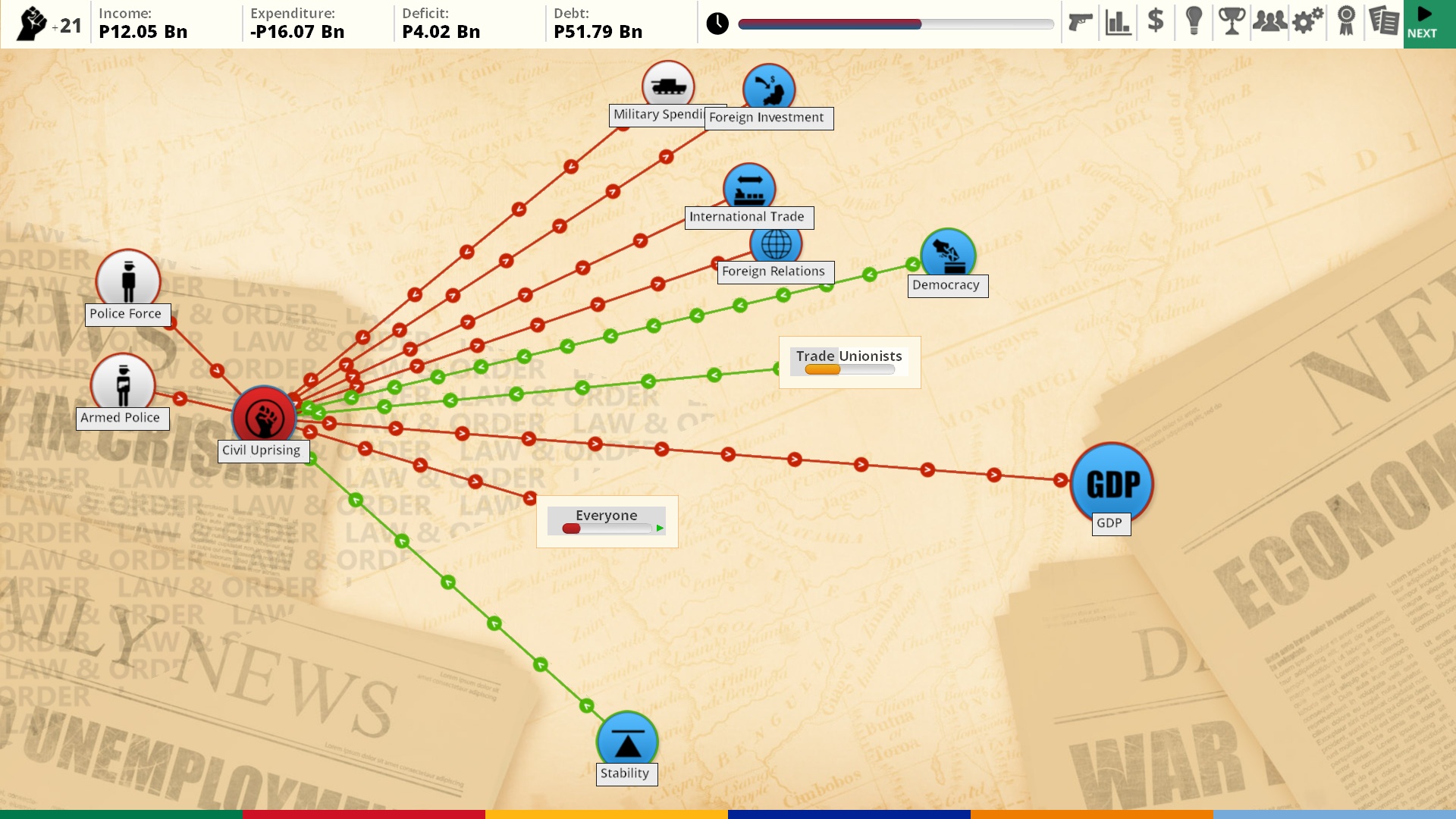

It’s all pretty straightforward and elegant once you get a handle on it, which is kind of the game’s biggest problem. You can run focus groups and look at polling data to gauge how well you’ll do in the upcoming election, and gear your policies appropriately. Each voter belongs to a number of voting groups (divided by age, political leanings, faith, race, and economic status), and prioritizes each one to varying degrees based on personal preference (so even if you’re neglecting the youth vote, youth who care about the environment might vote for you anyway). Democracy 3 puts a lot of effort into making it feel as though your country is populated by individuals.


If you spend more than you take in, you end up racking up debt, and if you take in more than you spend, you end up with a surplus, eventually putting cash in reserves.Īll this factors in when it comes to election time, when happy voters will try to put you back in office, unhappy ones will try to yank you out, and apathetic ones will stay at home… brooding, I guess. Additionally, most policies either generate a cost or income, which works into the government’s quarterly budget. Cabinet members have certain voter group affinities that affect their loyalty – essentially, if the voters they care about are happy, so are they – and ever-growing levels of experience that cut the political costs of policy implementation. Policies are bought with a resource called “political capital” which is generated by your cabinet members each turn, depending on how loyal they are to you. They affect (and to a limited extent are affected by) “Statistics” such as GDP and environmental quality, and “Situations” such as cybercrime waves and asthma epidemics, which in turn affect each other in an intricate web of feedback loops. They can cost or generate money, and will generally sway political opinion one way or the other. The sole method of interaction is setting policies, which affect your country’s economy, the environment, foreign relations, and a multitude of other factors. Like its predecessors, Democracy 3 is a very focused game. Unfortunately, be it due to the limitations of independent development or merely unambitious design, Democracy 3 doesn’t live up to its potential. With all its infighting, backstabbing, scheming and pandering, the world of democratic politics seems tailor-made to be turned into a complex simulation. With the US government shutdown fresh in our memories and tensions between right and left higher than they’ve ever been, there was potential for Democracy 3 to be a stunningly relevant and poignant game.


 0 kommentar(er)
0 kommentar(er)
